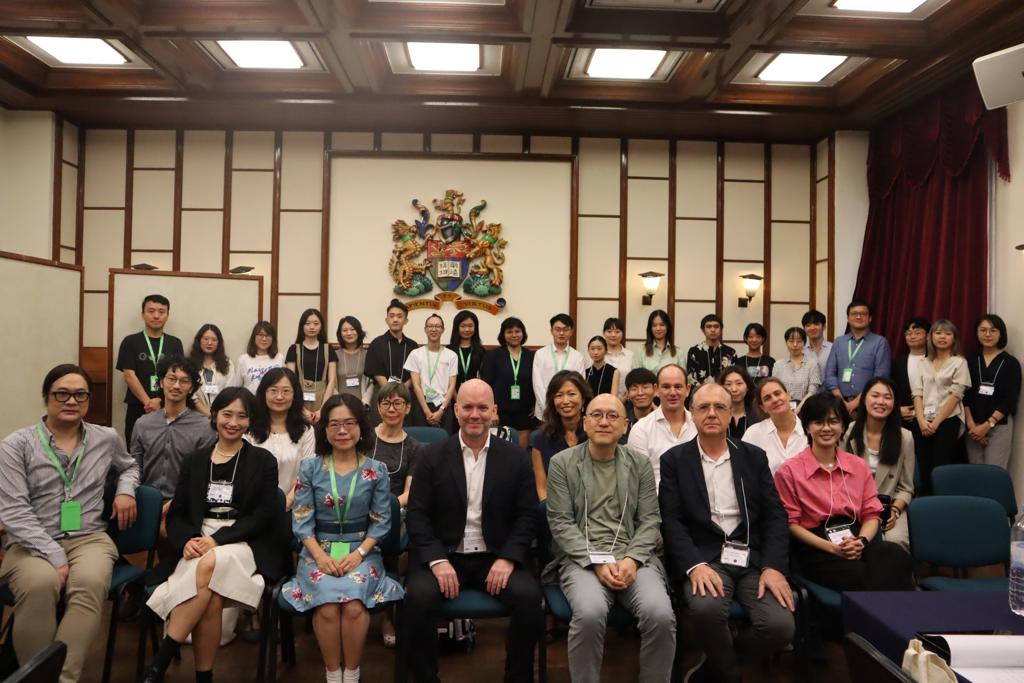Mementoes of COEDA 2023 conference

Last month, the Coalition of English Departments in Asia (COEDA) held its sixth annual conference at the University of Hong Kong. This intellectual collaboration brought together faculty members and graduate students from English departments of top universities in East Asia, including Seoul National University, National University of Singapore, University of Tokyo, University of Hong Kong, and National Taiwan University. This year, students explored the topic of refusal in linguistics and literature, questioning established boundaries of nation-states, persisting gender norms, and dominant thinking patterns within society. It was a sequence of stimulating dialogues and exciting conversations.
COEDA 2023 brought guests and their incredible intellectual energy into the home institution of students from the School of English: the University of Hong Kong. Here, they recall precious moments and share their unique experiences.
Jisu Bang is in the second year of his MPhil studies. He presented his COEDA paper on “Textual Unclarity in Legal Language” and was inspired by questions raised on site.
There was one time when a member of the conference asked me a question during the Q&A session. Of course, I gave him an answer right away based on what I could think of on the spot. However, not long after, I came up with a better answer to his question. Thankfully, I had the opportunity to talk to him about it during the coffee break. In other words, I had the answer in my head, but it took me longer than the given time to come up with it.
Also, I realized that a question can sometimes be more important than the answer or even the presentation itself. During the conference, I listened to many questions and received some in turn. I was amazed by some of the questions that were asked, which demonstrated both knowledge of the relevant research topic and respect for the presenter.
Clair Shenqi Wang graduated from the Master Program of English Studies (MAES) in 2023, with an excellent final project in literature studies. She recounts her enthusiasm in interactions with faculty members and peers from the COEDA community.
There were so many interesting encounters with unique individuals. I found special connections with peers who have been similarly integrating literature with extra-textual affordances. Geo Moon, from Seoul National University, is a musician. After the conference, I attended her performance. Her music was inspired by “The Moon and Sixpence”. I had previously created a pop-up book for my MAES creative project, which I then showed to my peers at the conference. They saw value in this book from various perspectives, some of which I had not even noticed myself. They loved it, and this encouraged me greatly. In the interactions, I felt I was not alone.
Luisa Wan is now a teaching assistant at the school, after the submission of her MPhil thesis this summer. Here is her memory as a listener at the COEDA conference.
One of the things I remember about the conference was the incredible energy of the presenters. They were passionate about their own projects and open to each other’s work. Many great presentations stood out from the day. For instance, I really liked the papers given by Ying and Hafiz from NUS. Their discussion on gender and queer theories is very much connected to my own research interests. I was also surprised by the papers on language, particularly, the sociolinguistic papers on advertisements. From my perspective, they are close to cultural studies and share a critical edge. It is interesting to learn about other students’ projects and the research trends within and beyond my own field.
The COEDA conference also left a unique impression on me because of the friendly atmosphere. I liked that the conference was open not only to faculty members from home institutions but also friends and families. For postgraduate students, this conference was a safe-zone, where they could feel supported. These are important feelings to experience for a scholar at the early stage of articulating their ideas, I think. The rhythm of the conference was very nice too, with a terrific buzz. During coffee breaks, people got to move around and mingle, enjoying the pleasure of dialogue and food at the same time.
Jack Lin is a second year PhD student. He was one of the student representatives and members of the postgraduate committee. He reflects on his experience of organizing a conference for the first time.
We started to prepare for the conference in March. Dr. Brandon Chua and Dr. Moonyoung Hong guided us through the process, devoting their time and energy to the organization of the conference. The faculty provided insightful suggestions for the call for papers. From them, I learned about the essential qualities and specific responsibilities of a faculty member. These experiences helped me to see an academic career from beyond a student’s perspective. Organizing the conference also brought more interpersonal communication into my routine. I got to interact with others via meetings and emails before the conference. During the conference, multiple layers of community were built, among peers, departments, and universities. The postgraduate committee was also grateful to be able to work with the wonderful team from the school office. Many heartfelt thanks to everyone who helped us throughout the process.
